Tommy James interview
The man, the legend, who’s career last almost 50 years and by that time sold over 100 million copies of records with many high-rated songs like “Crimson and Clover”, “Crystal Blue Persuasion”, “I think we’re alone now” and many other, speaks openly about his rises and falls. He remembers and tells quite picturesque about the roots and beginnings of psychedelic rock, back in the 60s, how the music changed during the time, why he refused to play on Woodstock in ’69 and why he was banned on BBC.
One of the main topics we discussed is of course his book “Me, the Mob and the Music”, that he co-wrote with Mark Fitzpatrick and released in 2010, where he honestly describes his relationships with famous music industry executive Morris Levy and his controversial associates from the New York underground.
In this in-depth interview Tommy James speaks openly about his life, music career and why he pissed off Frank Sinatra.
“I can just hear Sinatra mumbling, “Fucking kids,” while he cooled his heels in the lobby waiting for Tommy James, who had stiffed him.”
Tommy, your career is lasting more than forty years and you released over twenty albums with many popular and high-rated songs. Do you feel that you have more to say? Do you plan to record more songs and make more hits?
Well, we definitely plan to bring more songs! I have this very thankful kind of career I had to play rock ‘n roll and I never expected that it will last so long when I first started out. I’m really lucky to have three generations of fans that I see in concert crowed, and it is really quite amazing. I have my own record company now called “Aura Records” and we are touring all over North America every year. So, I’m gonna be recording some new material both for, you know, retail stores and radio, but also we are doing new music for a movie, that is going to be taken from the book “Me, the Mob and the Music”. And so, on a lot of different fronts we are gonna be making new music.
It has been three years since you released the book. Did you expected it to be so popular?
I was very pleasantly surprised. You know, I had never been an author before and so this was the first time for me. The book is actually in its seventh printing and I’m real amazed with that! And of course there’s going to be a movie produced by Barbara De Fina who did Goodfellas, Hugo, Casino and many others. We are very glad that she is taking on our project and is going to be at least two years since the movie is going to be released, because that’s the period when we gonna get the director for it, screenplay writer and a lot of other people on board. So I’m very thrilled with the acceptance of the book and the whole story.
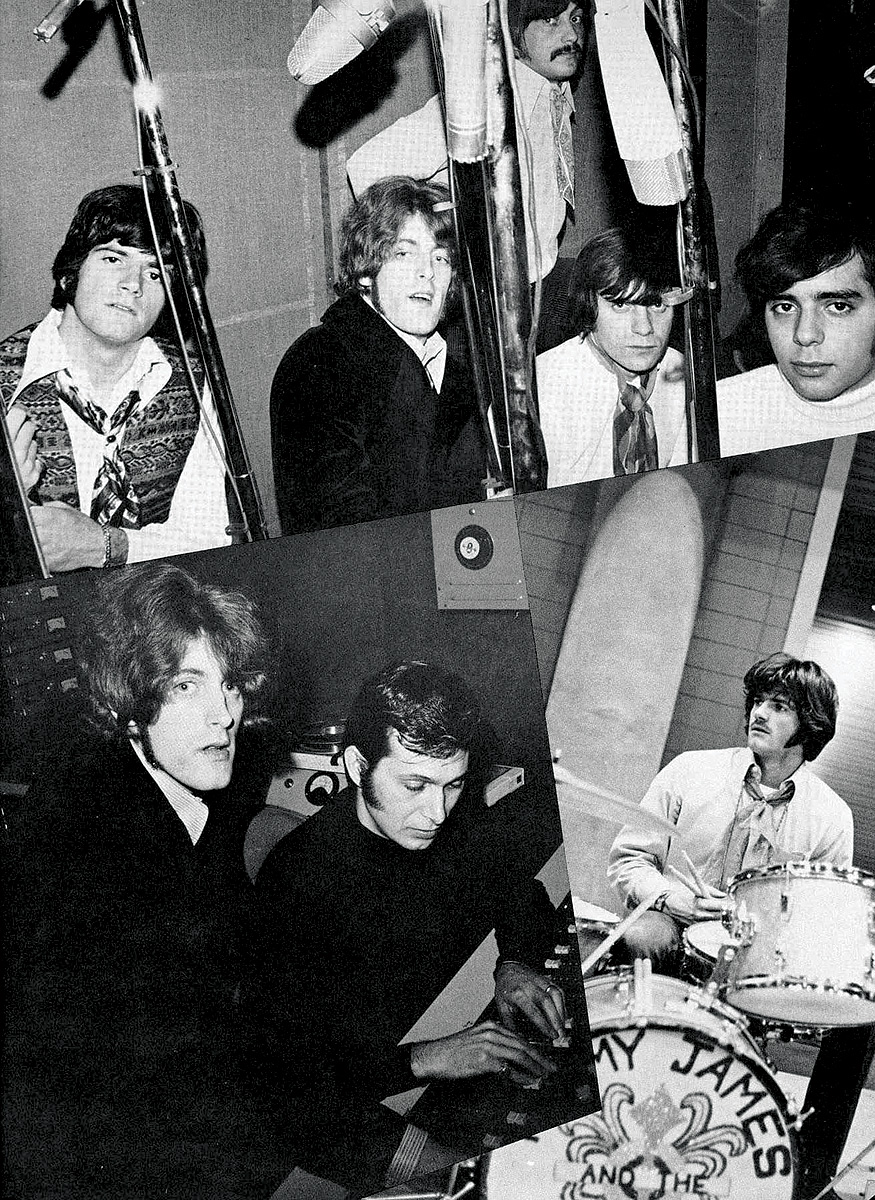
There were some news that Martin Scorsese was interested in directing the movie?
Barbara De Fina is Martin Scorsese’s producer and she is going to be producing the movie. Martin Scorsese at the beginning, at the first moment we were speaking about it, was doing I believe seven other films before he was to get able to do ours. We basically didn’t want to wait for so long, about five years. We are in the process of talking with three directors right now and we’ll be making announcement soon.
Let’s discuss a little bit about the book. The book you wrote describes how music industry functioned back in the sixties and seventies. Do you feel that now is maybe the same? I mean industry run by mobsters and a lot of them involved in this money making machine?
Well, I think that a lot has changed since then. When I first got in record business in 1966, Roulette Records was what we decided when we came to New York. We didn’t know that Roulette was ground zero of the mob activities in record business. Of course we learned that step by step. You know, we would meet somebody in Morris Levy’s office and a week later we would see him on TV on the news being taken for a warehouse in New Jersey, wearing handcuffs. We would say “But that was the guy we just met at Morris’s office!”, and of course that kept happening. So we basically learned incrementally who we were rubbing shoulders with. I must say that Roulette was the fund for Genovese crime family in New York City, and we didn’t realized that of course when we first signed with them. And of course we couldn’t talk about it. As the matter of fact, when my co-author Mark Fitzpatrick and I started this book, it was almost eight years ago. We were gonna call it “Crimson and Clover” and make it a nice book about the music business, the hits, writing songs and being in the studio. But we didn’t really wanted is talking about the mob stuff going on. When we got about third of the book, we realized that if we don’t tell the whole story – we are really cheating ourselves and everybody else. I was very uncomfortable talking about all this, because some of these guys were still walking around. So we basically waited another year for the last of the Roulette regulars, as I call them, to pass on. And so finally when the last one did in’06, we felt that we could finish the book. It took for three years to do it properly. So as we got finished with the book “Simon and Schuster” wrapped it and put it out. Immediately as the book came out we started getting calls for the movie and the Broadway rights. It is going to be a film and shortly after that is going to be a musical, a Broadway show. So that’s what we are looking at right now and I’m really amazed how the thing has taken off.
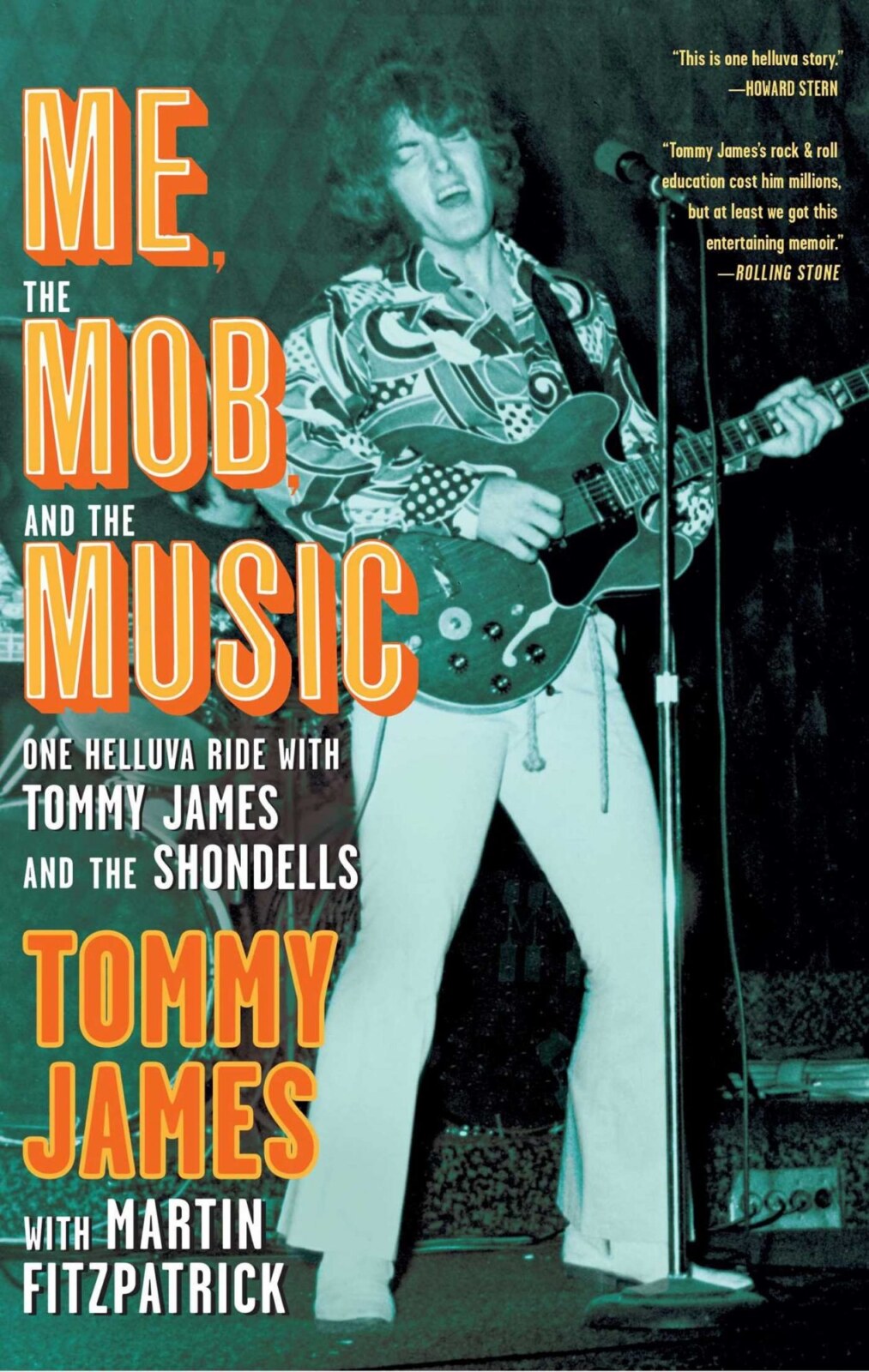
You wrote the great story of getting successful and yet You showed the dark side of it. In one interview You said that the book was like a therapy to You?
True! (laughing) That’s right. It was because, You know, I was caring this around for 40 years and I couldn’t talk about it. It was a great relief to tell about this story that was a part of my life for all this time, that I wasn’t able to discuss – until now.
Your book breaks the barriers and convictions that rock and roll was created from the masses. It actually shows that the whole thing was built on money, well in Your case it was built on the money form the underground.
Right.
Beside “Roulette” there were probably other record companies, made with mob money that converted many boys and girls into real rock stars we know today. Where are many of them now? Do You think that there were other people whose road was so hard and rocky as Yours?
Well I’m pretty sure it’s true. In fact I think that there are a lot of others who had it worse than I did. Even though Roulette was the center of mob activity in record business, there was a lot of it going on in other places. Some of it wasn’t quite so out in the open, but you know, mob basically ran a great deal in entertainment business during the 50s, 60s and 70s. So it was like Las Vegas: after the 80s, corporations pretty much took that over, but until that time for example – the mob ran Las Vegas! They used to run all kinds of businesses like jukebox business, vending machine business… They really had their hands in everything and it was pretty hard to get away from it, especially back in the 50s and 60s. We were kids form the Mid-West and we walked right into it, and of course that makes it exciting, you know – it’s hard to be rock ‘n roller and the mob together!
Talking about the mob, where all those gangsters fans of rock ‘n roll at all, or were they doing it only for the money?
Roulette for example was the part of Genovese family who were into all kinds of other things… Record business was just one of many that they were in to. I remember when I first joined the Roulette Records, Morris’s partner Tommy Eboli was the head of the Genovese family. Several people who came up to Roulette fairly often, four of them as the matter of fact, ended up as the heads of the Genovese family. They made a little secret about it. You know I felt frankly threat joining the Roullete. Basically They weren’t paying mechanical royalties, and the good thing that we were making many for other areas of getting royalties like commercials, BMI and radio airplays. But they made it very clear that if we got too loud about it, like go to court or create problems, you know… it could end badly for us.
Then I assume that in that period You weren’t doing music for money, because You were not getting any royalties. You only earned money from the gigs?
There were concerts, but also we were making money from radio airplays and commercials. You know, there’s a lot of other ways to make money besides royalties. However, the royalties were the biggest part of that and in the end we were cheated out of nearly 40 million dollars! We got a part of that back, but that’s how much we were cheated out.
Speaking about Morris Levy, has the book helped You to overcome Your relationship with him, because he influenced a lot on You and Your career?
Well, Morris passed away in 1990, I guess You know that from the book, but honestly it was very good to get this off chest and talk about it. This was the biggest project I was involved in, beside the movie and the Broadway show that are going. So I have to say that it’s ironic that the biggest project I was ever involved in is gonna be the re-telling about this story.
I would like to switch to the periods of music, about which You wrote in Your book – 50s, 60s and 70s. Our readers are always keen to read about the golden age of psychedelic music form the 60s, especially from someone who was not just a listener, but one of the many contributors. Do You remember first psychedelic songs that left big mark in Your mind?
Sure! I first became aware of the changing in music scene, especially psychedelic music, in 1967. Strangely enough it started with “Strawberry fields” by the Beatles and I remember listening to AM Top 40 radio, like everybody else. In the February of 1967, I remember I was going to a rehearsal and all the radios played “Happy together” by The Turtles which was about as AM pop as you can get and right after it I heard “Strawberry fields” by the Beatles. That really left an impression on me because I realized that the pop music is being divided into two different categories. Within a month you got Cream, Big Brother and The Holding Company (with Janis Joplin) and just a lot of other artists came on the scene. Album sales became to increase and within a year you had FM radio, which up to that time played jazz and classical music, and now played rock n roll! Suddenly there was this huge change in the music and psychedelic sort of became just a part of the landscape. Everybody really changed the record sales from singles to albums. You know it’s funny because the following year we were out with Hubert Humphrey on 1968 Presidential campaign and when we left in August of ’68 to go on the road with him, I remember distinctly that all the acts on the radio were all “single acts” – the The Rascals, the Beatles of course, Gary Puckett and whole other acts who were selling singles. When I came back, ninety days later, it was all albums – Blood, Sweat & Tears, Crosby, Stills and Nash, Led Zeppelin… It was amazing that in only ninety days the whole industry was turned upside-down and we were very lucky to be working on “Crimson and Clover” at that very moment, because that album allowed us to make that jump from AM Top 40 singles to FM Progressive Album Rock. I don’t think that there is any other record, that we ever made, that would allowed us to do that in one shot, like that. I have always been grateful that “Crimson and Clover” became our biggest selling single and also the second half of our career. I think my career could ended right that moment with “Mony Mony” if there wasn’t “Crimson and Clover”.
At the end of the 60s, as the songwriter who lived in the period of economic changes, Vietnam War, hippy movement and social songs, which of Your songs were written to support directly or indirectly the whole peace movement back then?
There were two of them that immediately became that – one is “Sweet Cherry Wine” and the other one was “Crystal Blue Persuasion” which were written immediately after the “Crimson and Clover”. Basically they sounded like what I believed in that moment and I still do. I was very glad that those records became as big hits as they became, because they were truly very different type of music than what we started out with. You know, we started as the garage band and we ended up selling albums with a lot of different kinds of music. One thing I must say is that we felt our records were like chameleons for a while, because we literally went from “Mony Mony” to “Crimson and Clover”, “Crystal Blue Persuasion” and “Sweet Cherry Wine” and we kept dragging the line and changing the sound! It wasn’t that we were trying to do that, it’s just we were writing so many different kinds of songs and we just picked the best one of them, and each of them was a snap shot of what we were writing in that moment.
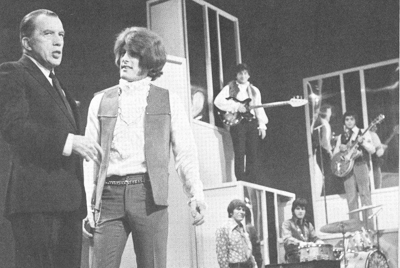
What can You say, as the spectator and contributor, what happened to the hippy movement back in the 70s? Have the hippies grown up?
Yes! (laughing) And they started losing their hair! But what basically happened is that music changes with the times and it’s a generational thing. We were lucky to keep going to as long as we did. We had hits from 1966 to 1981 and we were very fortunate to have that long run. That allowed us to have a big fan base. But I must say that the whole hippy movement was always pretty silly. You know, most of the people that were involved in hippy movement were really full of shit! But the bottom line is that music and the times will always be remembered by anybody who loves music, and I’m one of them!
So why after the resignation of Nixon everything stopped? Although USA fought a lot of wars in decades after and many soldiers died just because of the same ideals and money profit the Government had then? Have those hippies become the Government now? For example Hilary Clinton declared herself a hippy back then…
Right! I gotta tell you that one thing I continuously being against is all the war hunger. And it never seems to stop! This is one area that I feel very strongly about. For almost 45-50 years we had been involved in a war after war after war, and absolutely for no reason and I’m sick of it and so are the American people. To tell You the truth, in some point here the line is going to get crossed and people are going to have their say. You know in many ways I’m very conservative guy from the Mid-West, I’m Christian, I believe in God and I feel very strongly that about ninety percent, of what we are doing as a country is just all wrong! I feel that for a very long time! We have a lot of rights in this country, a lot of wonderful people, but it almost seems that the Government and the people are bumping heads…
I have read very interesting stuff about You refusing to play on Woodstock. Your agent told You that it’s a “pig farm”, so it didn’t sound tempting? Do You think that it might have changed Your career to some other way, if You played there?
Well it’s hard to say… You know we were at the Hawaii and I got asked if I would like to play this “pig farm” in upstate New York. I was like: “What did you just say?!” Finally I said to forget about it. Of course by that Friday we all knew that we screwed that pretty bad because Woodstock was going to be a historical moment and nobody dreamed that! I really wish that I made the effort gone, but listen you cannot make up for things. The funny part is that last year we played on Woodstock that they have in a large outdoor theater and I announced to the people that we got lost and we needed forty-three years to get us there! (laughing)
Actually we can say that Your destiny was the same as John Lennon’s, Joni Mitchel’s, Rolling Stone’s … They all refused to play on pig farm in order to do something else. Bob Dylan actually refused to play because he hated hippies?
Yeah, that’s right! (laughing) But everybody wishes that they had gone, believe me!
I surely do. What about modern day albums? Do You listen to new albums of Bob Dylan, or Neil Young, or anybody of Your colleagues who releases something new? Do You follow their work now?
Sure! Sure I do. It’s always interesting to hear how people’s music changes with time. Because every record that we made was the snap shot of what we were feeling right that moment. So I’m always very intrigued to hear what kind of music artists from the past are making now. It’s a real insight into a people’s soul.
I would like to discuss about the period You were banned on BBC. That was in the end of 60s and the beginning of 70s. You know, many people, especially in Europe, think that “Mony Mony” is actually Billy Idol’s song?
Yeah, you know, “Mony Mony” was put out in the States just before it did in England and it was one of the big records of the decade in England. Well what happened was, I was supposed to come over and do the “Top of the Pops” but I was asked by the vice-president (of USA) Hubert Humphrey if I would go on the road with him. So I decided to go on the road with him and I had to cancel my appearance on “Top of the Pops”. Well, BBC never really forgave me for that. My next four records weren’t played in Britain, as the result, or in Europe. I had number one records over here but no play over there because the BBC was very upset with me. That’s how that happened. Gradually, that all works itself out and all of the records ended up being heard and I was happy about that.
Do you tour in Europe?
I haven’t toured in Europe for a very long time. The last time it was the early eighties when I came over, and I was with PolyGram and I did television, Holland and Germany. So that was the last time I was in Europe and I would definitely love to come over again!
Are there any particular reasons, why man who wrote “Mony Mony”, “Crimson and Clover”, “Crystal Blue Persuasion” and many other hits, hasn’t played in Europe for thirty years?
Well I wish there was a good reason, but there really isn’t except that schedules never worked out. I would like to come over, I truly would and I think it would be really great to come and play in Europe!
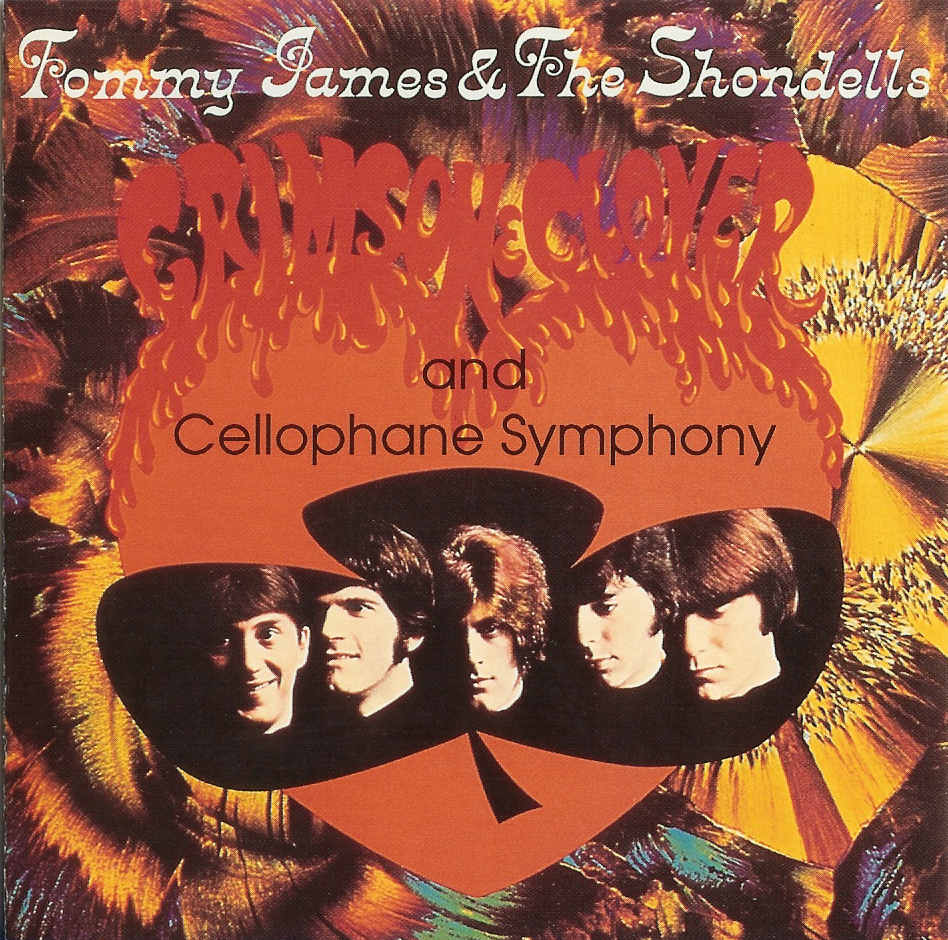
On Your concerts You play many of Your hits. Which of them is like THE special one for You? Maybe Your favorite? Maybe a song that’s not even a big hit, but You just like to play it because You love it?
Oh boy, that’s tough one! I have two of them, probably I have to say it’s “Crystal Blue Persuasion” just because of the type of song it is, and “Mony Mony” is how we end the show. There’s not much air left in the room after we do “Mony Mony”…
You wrote in Your book, that the tittle of the “Crystal Blue Persuasion” was inspired from the “Book of Revelation”?
That’s true. I believe it was Revelation twenty-one… It’s funny how that song was written. It was just about the time when I became a Christian, so that’s really what the song was about. Whoever thought it was about drugs – no it wasn’t, it’s about becoming a Christian.
I read that in Your childhood You were a huge vinyl collector. What about now?
Yes and I still do it! You know, one of the things we are doing this year is releasing the Christmas album on vinyl. So we are really looking forward for it, because I haven’t released vinyl album since 1980. That’s how long it’s been. I love vinyl! I always have fact, that half of the experience of playing recorded music is watching the record go around and seeing the colors of the labels. You know a CD sort of goes away into a drawer and that’s the last that anybody sees it, but the vinyl record has something live about it. I have always felt that way and of course that’s coming from a guy who’s a sixty-five years old. But believe me, if I was thirty I probably wouldn’t be saying that!
OK, just I’m around thirty and I’m a huge vinyl collector myself.
(Laughing) Well you know, the truth is that vinyl is making a big comeback, in the States anyway. College kids are buying vinyl and it’s really amazing. And so all of our albums were gonna be releasing on vinyl. We have a new distribution deal and it is worldwide now. I just signed it with LA Company called Allegra and they not only service North America, but they service Europe, Asia, South America and all around the globe. Finally our entire catalogue is going to be out all over the world. In addition to the CDs we want to put out a large amount of vinyl too.
That’s surly a good news for vinyl collectors. But do You follow modern rock ‘n roll scene? Do You have maybe some new artists that inspire You now?
Well I like anybody who’s on scene right now. I love Adele and I think she is very talented. I’m a big jazz freak! I love modern jazz and smooth jazz. Of course I listen to a lot of rock n roll today, but I like to listen to a lot of different kinds of music.
What do You think – is it harder for rock n roll bands today to breakthrough? On one hand you have internet that is available to everybody, but on the other hand there is so much information there on the internet, that you can’t even grab everything?
The funny part is that it’s both good and bad for artists today. In the old days of course it all went on the radio and tens of millions of people heard rock n roll on the radio. Today it’s a very different market. Terrestrial radio has only a small piece in the action and internet radio is gained ground every day. The digital market place has never been bigger and is getting bigger and bigger. You have to do a lot of things to get the music in front of the public today, that You didn’t have to do twenty, thirty of forty years ago. We are going from one major technology to another and we are in a really strange place right now because not all the rules have been made up. We are still learning things as we go along, and it will probably take another three, four, five years before all the dust will be settled. But more and more digital is taking over of course, so everybody has to gear their music for the internet.
Do You think that things like iTunes, downloading and everything are good or bad? You know on one hand now on the internet people can find all of Your albums just for free and can hear them. On the other hand it is affecting not only You as the creator, but the whole music industry, everybody who stood behind for all this time printing and releasing albums…
There is a lot of truth in that and that’s one of the things that’s very difficult right now for an artist to decide what is more important: to be heard or to get paid. Basically it gets to fifty-fifty split, because you can’t get money from something people don’t know about, but yet you don’t want to do everything for free and I’m kind in the middle with that. Although I think that all those rules are coming around… You see things more clearly as the internet is getting bigger, I think there’s going to be plenty of money for everybody. You know this was the first year that digital really paid! Up until this twelve – eighteen months, You didn’t make a lot of money digitally as an artist, but all of a sudden it’s beginning to change. All the new mobile gadgets and all of the new toys are allowing artists and songwriters to get paid now. Well they didn’t two or three years ago…
OK, then let’s go back to the 60s… There was a funny story You wrote in Your book, when Frank Sinatra was waiting for You at the hotel lobby and You skipped that meeting! Do You now feel sorry for that?
Yeah, that was another big mistake! (laughing) I was playing the Hollywood Bowl in Los Angeles and I was supposed to just go back home and I forgot that I had an appointment with Ed McMahon from “Tonight’s Show” who brought Frank Sinatra with him to the hotel. I went to recording studio instead and I forgot all about the appointment. I got home about 3 AM and the hotel clerk said that Frank Sinatra had been there and I couldn’t believe that I blew it! So that was another missed-out opportunity and I got a plenty of them!
You quoted that he said “Fucking kids” or something like that?
Yeah, that’s right! (laughing)
Is there some others artist’s song that You wished that You had written?
Oh sure, there are so many records that I love, because before I’m anything else – I’m a fan! I listen to very carefully to what other people are doing. You know, they say that in songwriting you get to steal from everybody. So, that’s what I do! (laughing) I mean, I’ve been listening to the radio since I was, oh God, four years old! I got a catalogue of music in my mind that You wouldn’t believe and I listen very carefully to anybody. Music is my life and there’s nothing else in this world I want to do, any more than make music!
Do You contact with Your old friends and band mates from Your first bands?
Sure I do. But about half of them are dead. From the very original group that I made “Hanky Panky” with, in the early 60s, I have one very close friend – the drummer Nelson Shepard. He and I remained best friends all these years and all the rest of them are gone unfortunately…
Actually “Hanky Panky” wasn’t Your song in the first place?
No, it wasn’t. It was a song I heard another band play. And I was fifteen years old. We went into the studio when we had a small record deal with the company called Snap Records back in my hometown in Niles, Michigan. When I was in high school I was listening to songs I can do, I can record, and I heard this song “Hanky Panky” and I saw what it did to the crowd! Everybody hit the dance floor and they must had around six requests for it! They played it five to six times that night and every time they did, they had a bigger reaction from the crowd! So I said: “Boy, there’s one that we gonna do!” and we went to the studio and recorded it. It turns out that it was written by Jeff Barry and Ellie Greenwich who first recorded it. They called themselves “The Raindrops” and they recorded it for Jubilee Records on the flip side of the record called “That boy John” which was about John Kennedy. After the Kennedy assassination that record was taken of the market, and of course “Hanky Panky” was on it and so nobody ever heard the record. So we recorded it in the studio and it went number one locally in six to eight counties where we had distribution. Finally I forgot about the record and year and a half later I graduated from high school and I took my band on the road. In the early 1966 we were playing a dumpy little night club in Wisconsin and right in the middle of two weeks the guy goes broke! IRS shut it down and we got all send back home. And that’s how the good Lord works, because I went back home and immediately got a call that changed my life. “Hanky Panky” that was over two years old – got bootlegged in Pittsburgh and they sold 80.000 copies in ten days and it was number one! That’s when my career started and it was just a miracle.
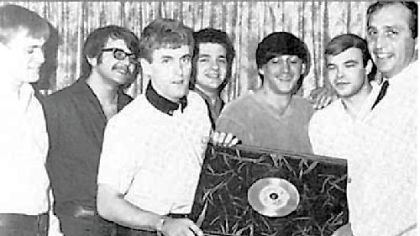
Kessler — receive their first gold record for “Hanky Panky” from
Morris Levy in 1966.
Well it definitely was a miracle to become popular with a pop rock song and then to change Your music from period to period. You played many types of rock n roll – psychedelic, hard rock, pop rock and other rock n roll sub genres.
Yeah, we went through all kinds of changes but we were also very lucky to have public’s attention for so long, because today you don’t have public’s attention long at all. This is a business that maybe gets you two years, if you’re lucky, and we’ve been doing it for almost fifty, so I got to tell you I’m very blessed.
Your last solo album “Hold the fire” has been released in 2006. Are You planning new solo album, maybe writing songs or recording it?
Yes we are. Actually right now we are writing songs for the movie. We are going to be writing new music for the movie, but also I brought the original three surviving members of the original Shondells, up to New York and recorded them on brand new version of “I think we’re alone now”. It’s slow and very different from the original record and it just came up beautiful. That’s probably going to be our first single released from the movie. It’s gonna be the closing credits for the movie, and we can’t wait to put it out because it really turned out beautiful!
To conclude our interview I must ask You: what is the most valuable thing You learned from rock n roll?
Well it’s got to be the relationship with the fans. Because the relationship with the fans is what makes everything go and work. It’s so lucky to have three generations of fans. You reach a point when You feel like it’s an extended family! They are the ones who’ve been putting food on my table for like forty-five years and have stuck with me for all this time. We are lucky because on the concerts we keep making new fans. So I really believe that relationship with the fans is really the only thing that’s important. I mean you can have a lot of global records and statistics and everything, but if you don’t have relationship with the fans you don’t have anything. So, that’s what I’ve learned…
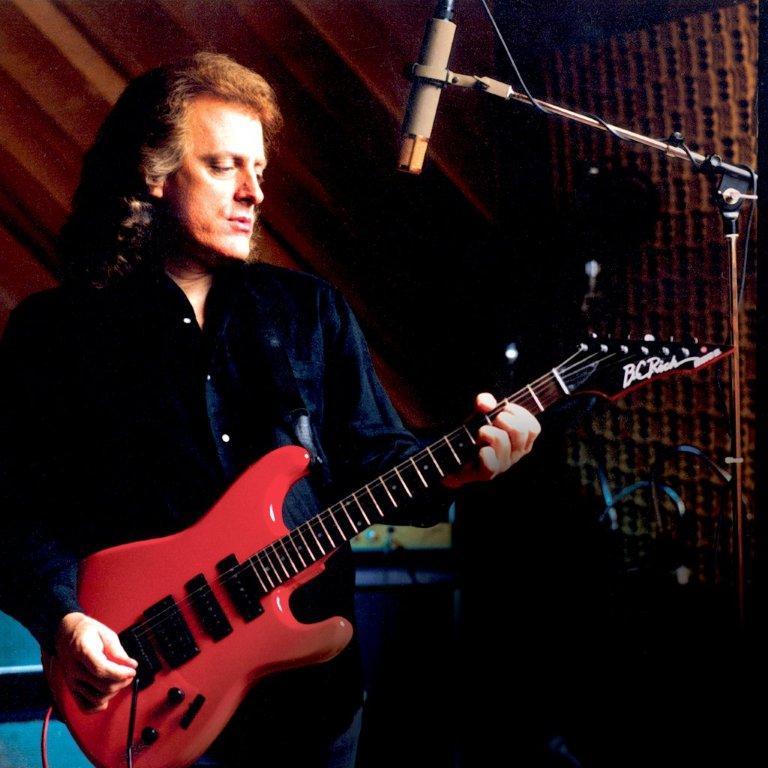
Tommy, thank You for the interview and the fabulous book You wrote. I hope our readers will buy and read Your fantastic story. Also good luck with the movie and the musical!
Thank You. By the way if anybody wants to check out what we are doing just come to the website www.tommyjames.com. Thanks and take care my friend!
Andrija Babovic and “It’s Psychedelic Baby” crew would like to thank to Tommy and his associates Carol Ross-Durborow and Ira Leslie for arranging and helping this interview to happen!

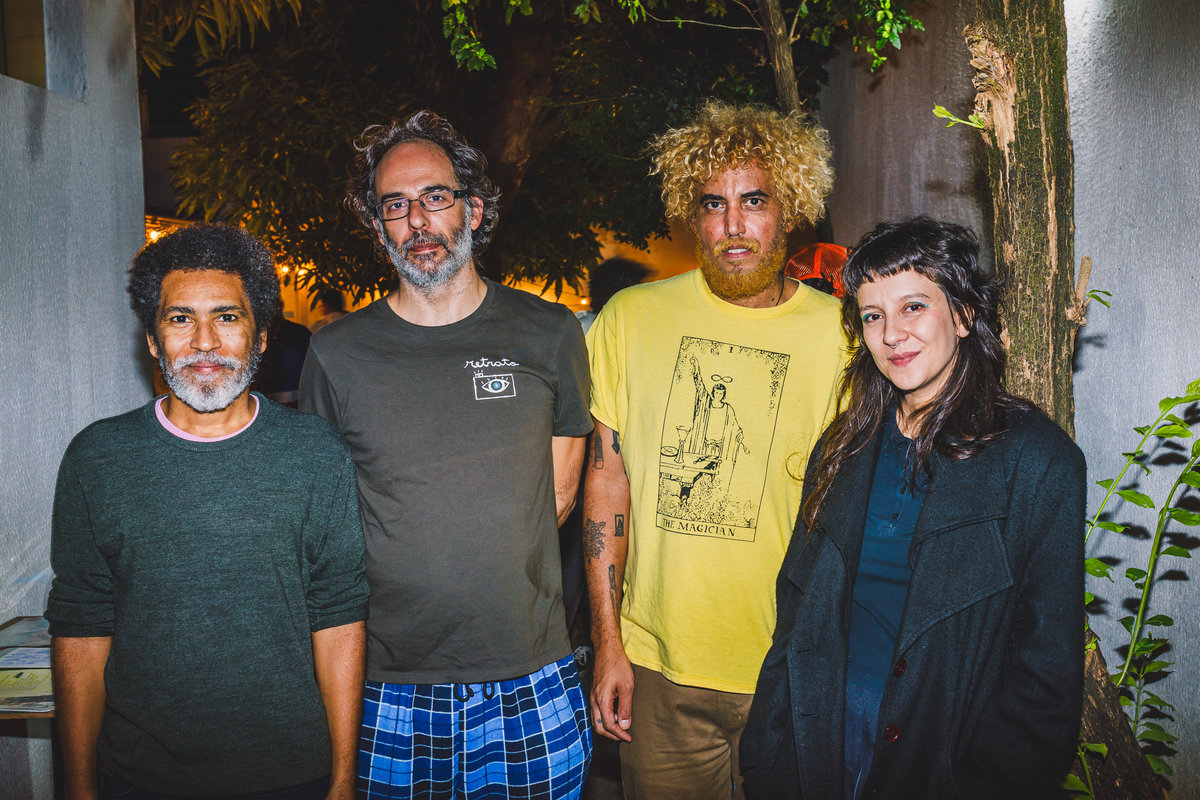
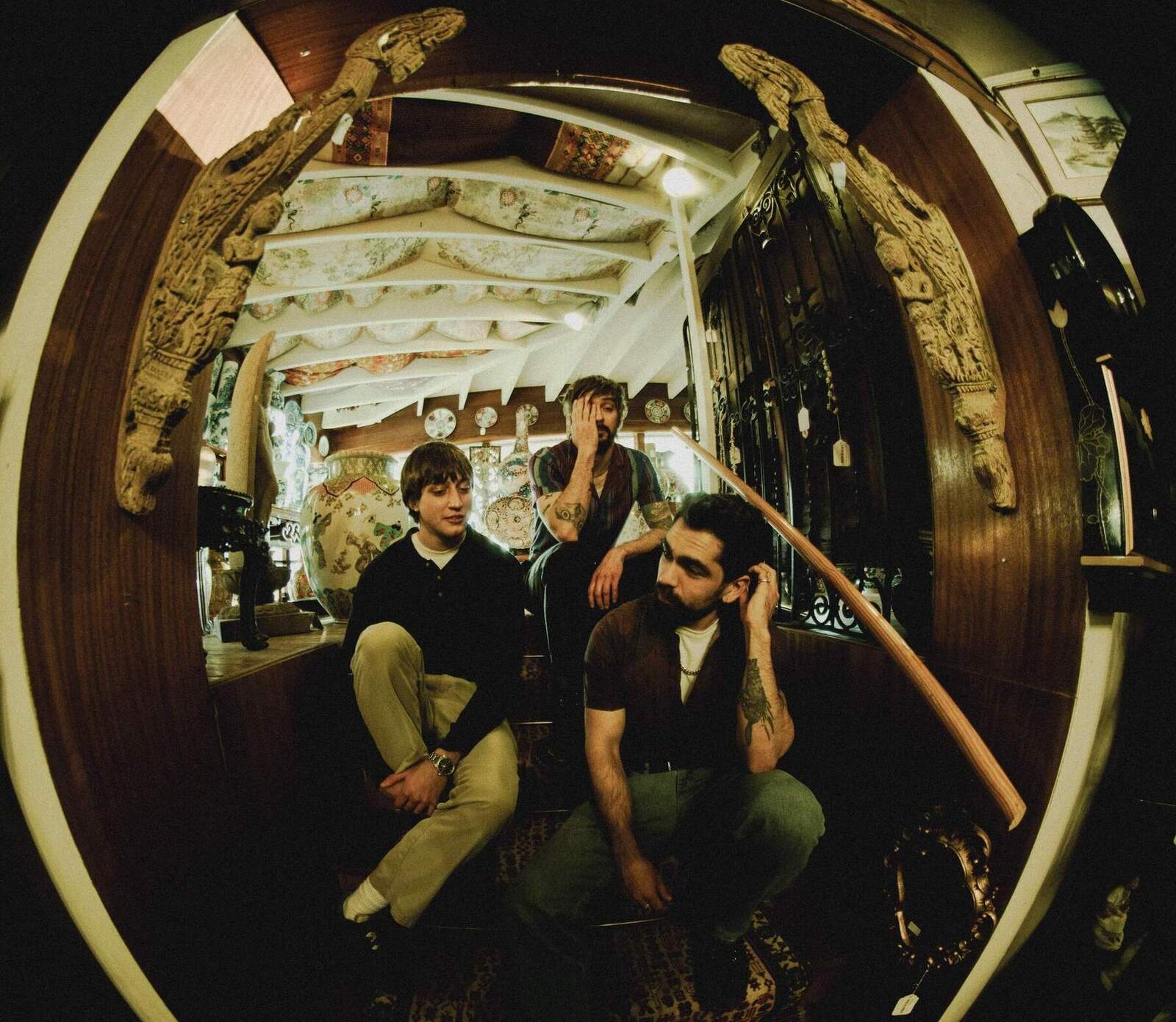

1972 I work with a man in New York Who claimed to have managed Tommy James his name was Mark. Alan. Have you heard of him or know anything about him? Just curious….